- DETERRENCE: The Future of the U.S. Intercontinental Ballistic Missile Force
- DPRK: Military and Security Developments Involving the Democratic People’s Republic of Korea Talks
- ENERGY SECURITY: Revealed: How Climate Change Ended World’s First Great Civilizations
- GOVERNANCE AND CIVIL SOCIETY: South Korea-U.S.-Japan Summit Highly Likely: Sources
- CLIMATE CHANGE ADAPTATION: The Future of the Winter Olympics in a Warmer World
- AUSTRAL PEACE AND SECURITY: Maneuvers Make Waves but in Truth Chinese Navy is a Paper Tiger
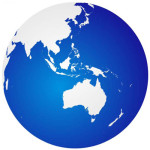 DETERRENCE: The Future of the U.S. Intercontinental Ballistic Missile Force, Lauren Caston et al, RAND, 2014
DETERRENCE: The Future of the U.S. Intercontinental Ballistic Missile Force, Lauren Caston et al, RAND, 2014
With US ICBMs at 420 and 4 used per year in tests, and allies demanding credible extended deterrence against China, DPRK, and Iran, this study concludes that “continu[ing] to reduce force sizes may compound the problem of balancing these increasingly complex interactions and relationships. The ICBM may have to evolve to support these future situations.”
- U.S. Strategic Nuclear Forces: Background, Developments, and Issues, Amy Woolf, Congressional Research Service, RL33640, October 22, 2013 [PDF, 0.5MB]
- Nuclear Corps, Sidelined in Terror Fight, Produces a Culture of Cheating, HELENE COOPER, New York Times, January 22, 2014
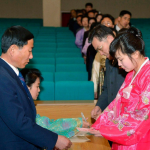 DPRK: Military and Security Developments Involving the Democratic People’s Republic of Korea Talks, Office of the Secretary of Defense (2014) [PDF, 132 KB]
DPRK: Military and Security Developments Involving the Democratic People’s Republic of Korea Talks, Office of the Secretary of Defense (2014) [PDF, 132 KB]
U.S. Department of Defense released a report on DPRK. The importance is that North Korea’s actions are drawing increased DOD analytical efforts – a light North Korea likely does not want shining on them. North Korea’s elections are another indicator that Kim is effectively in control. It was never a question that he would win, but since elections also operate like a de facto census, North Korea, in effect accounted for the whereabouts of all their citizens. They are also confident enough to talk with the South about Kaesong Industrial Zone.
- Personnel shifts in the SPA election: Steady as she goes. Michael Madden, 38North (17 March 2014)
- S. Korea, DPRK’s joint panel hold first talks on dispute arbitration for Kaesong complex, (China) English (language) People’s Daily. (14 March 2014)
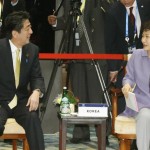 GOVERNANCE AND CIVIL SOCIETY: South Korea-U.S.-Japan Summit Highly Likely: Sources, Yonhap News (19 March 2014)
GOVERNANCE AND CIVIL SOCIETY: South Korea-U.S.-Japan Summit Highly Likely: Sources, Yonhap News (19 March 2014)
Following Japan’s decision not to revise its 1993 apology to ‘comfort women’, Korea is indicating its openness to a trilateral summit with the US and Japan on the sidelines of the upcoming Nuclear Security Summit. This would be the first meeting between the leaders of Japan and ROK in nearly two years. Japan is seeking working-level talks between the US, China and ROK in July to discuss countering nuclear terrorism.
- Japan’s Abe says won’t alter 1993 apology on ‘comfort women’, Reuters (13 March 2014)
- Japan eyes confab with U.S., China, S. Korea to curb nuclear terrorism, Kyodo News International (16 March 2014)
 CLIMATE CHANGE ADAPTATION: The Future of the Winter Olympics in a Warmer World, University of Waterloo and MCI Management Center, Canada (2014)
CLIMATE CHANGE ADAPTATION: The Future of the Winter Olympics in a Warmer World, University of Waterloo and MCI Management Center, Canada (2014)
Today the Olympic Winter Games is truly a global cultural event. However, the cultural legacy of these Winter Games is increasingly at risk due to the climate change. Internationally renowned Olympic sites, such as Squaw Valley (USA), Garmisch-Partenkirchen (Germany), Vancouver (Canada) and Sochi (Russia) would no longer have climates suitable to reliably host the Games by the middle of the 21st century.
- XXII Olympic Winter Games, Sochi (7-23 February 2014)
- Climate change – a growing concern for winter Olympics hosts, Brian Kahn, Green News (8 February 2014)
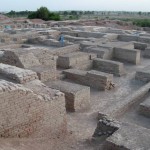 ENERGY SECURITY: Revealed: How Climate Change Ended World’s First Great Civilizations, David Keys, Independent (3 March 2014)
ENERGY SECURITY: Revealed: How Climate Change Ended World’s First Great Civilizations, David Keys, Independent (3 March 2014)
That civilizations should develop and decline or migrate, with or without climate change and resource patterns, is not surprising. Civilizations have depended on water, and the Harappan ones did not use fossil fuels that we know of. Today’s Iran, or California, also suffers from water scarcities, and have their power systems closely tied in with water and fossil fuels. GHG cap-and-trade system will make California’s power situation worse.
- Saving Iran’s biggest lake is priority for new president; dams and heavy irrigation are blamed, Ali Akbar Khan, Associated Press (19 February 2014)
- Gold Rush ghost town bodes ill for California power flow: Energy, Bloomberg News via MoneyNews (21 February 2014)
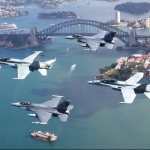 AUSTRAL PEACE AND SECURITY: Maneuvers Make Waves but in Truth Chinese Navy is a Paper Tiger, Paul Dibb, The Australian (7 March 2014)
AUSTRAL PEACE AND SECURITY: Maneuvers Make Waves but in Truth Chinese Navy is a Paper Tiger, Paul Dibb, The Australian (7 March 2014)
While accepting its US alliance, Chinese strategists see a critical Australian role in the AirSea Battle concept “will be a step too far”. Within that alliance, the Australian army head sees the continental “Defense of Australia” doctrine as a “fantasy” to be replaced by an amphibious power projection capacity. Yet the DOA’s architect sees “predictable over-reaction” to Chinese anti-access capacities, beyond which China will be a hobbled land power.
- A rising power looks down under: Chinese perspectives on Australia, Jingdong Yuan, Australian Strategic Policy Institute (March 2014)
- Chief of Army address to the Lowy Institute, Lieutenant General David Morrison, Army (19 February 2014)
- Reader response: Power sharing and risk management in Hugh White’s ‘China Choice’, Hugh White, The Strategist, (11 March 2014)
The Nautilus Peace and Security Weekly Report presents articles and full length reports each week in six categories: Austral security, nuclear deterrence, energy security, climate change and security, the DPRK, climate change adaptation and governance and civil society. Our team of contributors carefully select items that highlight the links between these themes and the three regions in which our offices are found—North America, Northeast Asia, and the Austral-Asia region.
- Subscribe to NAPSNet to receive free weekly email reportsEditor
Contributors:
- Deterrence: Peter Hayes
- Governance and Civil Society: Dyana Mardon
- Climate Change Adaptation: Saleem Janjua
- DPRK: Roger Cavazos
- Austral Peace and Security: Richard Tanter

